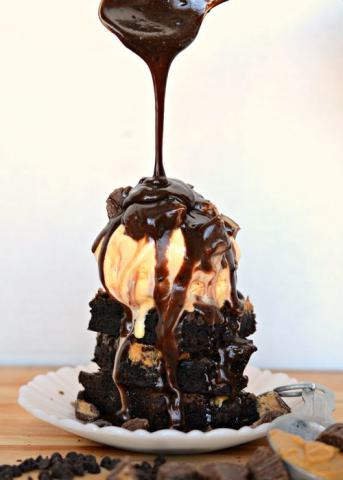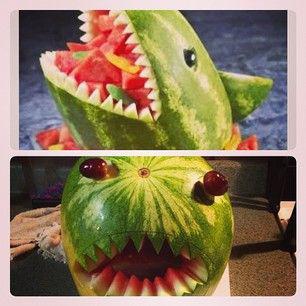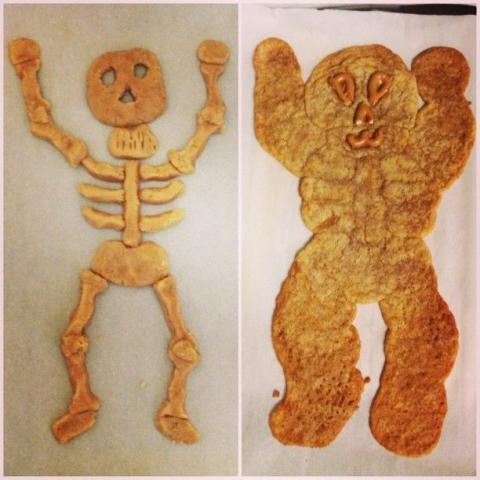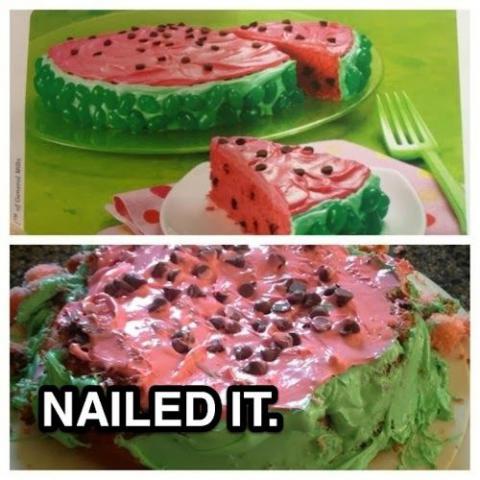Nailed It: Pinterest Food Fails and Envy on Social Media

Image Credit: Bless This Mess Please
We’re all familiar with the genre of food porn, those delectable treats that show up on Instagram and Pinterest, tempting us with food that is as beautiful as it is (presumably) delicious. Articles such as “The 35 Most Heartbreaking Food Fails of 2013” and “21 People Who Prove Your Baking Could Be Worse” demonstrate the difficulty people have in replicating the lovely pictures they see on the site. If one searches Pinterest for “food fails,” one gets a barrage of paired images. Each features the original Pinterest picture and the result of someone’s attempt to make it, often with the ironic phrase “nailed it” written across the second picture in the white text used for internet memes. In the era of food porn, food doesn’t just have to be tasty; it has to look just right, too.
The “food fails” usually result from an attempt to replicate a complex image, often a food item that is supposed to look like something else, like this shark:

Image Credit: Alanna Okun
Though the watermelon and grapes probably tasted perfectly good, the cook failed to make the watermelon appear like the healthy and voracious-looking shark in the upper picture. Instead, it looks like a cross between a jack-o-lantern and a creature with eyestalks. Similarly, the skeleton on the right seems to have been through some sort of nuclear meltdown:

Image Credit: Arielle Calderon
It only takes a few touches for something that was supposed to have been cute to turn creepy. But it’s not merely the hubris of trying to make your food into representative art that results in food fails. Food can collapse, crumble, melt, or burn. While the first three calamities, at least, do not affect the taste of the food, they prevent the appearance of the food from fulfilling what was in the cook’s mind and before the cook’s eyes on Pinterest.

Image Credit: Plowing Through Life
I would be perfectly happy to eat either of the cakes pictured above, but if I were to try to make the former, I couldn’t help but be disappointed if it turned out like the latter. In the era before food porn, I half-remember and half-imagine, one would make recipes from cookbooks or those handed down from one’s relatives or neighbors, aiming only for them to taste and look as good as they did when other people one knew made them. That classic I grew up with, The Joy of Cooking, has no photographs. Now that we have photographic social media, however, we have more to aspire to, and consequently, farther to fall.
The juxtaposed images may at first seem to be arguing for the inadequacy of the cooks attempting the Pinterest recipes. However, it was presumably those cooks who posted the images of their “fails,” and perhaps even they who put the meme text on them. For this reason, I think the posts also argue that Pinterest and Instagram pictures of food create unrealistic expectations. Like Facebook, these sites can be used to create envy of the person posting the picture, forcing the viewer to compare themselves to a fictionalized ideal life. The original baker or cook did not post the images of a series of trial runs, just as most people’s Facebook posts do not share their failures but focus on their successes and satisfactions instead.
The “food fail” articles are written to amuse readers, or, in the case of the baking article, to make them feel better about their own efforts. Despite their humorous nature, however, the food fails are reflective of a larger social phenomenon. We are in the habit of comparing our lives unfavorably to those of others as reflected on social media. Though we may know deep down that they probably have just as many failures and bad days as we have, all we see on many social media accounts is evidence of an unremittingly successful life. So we try to shape our own social media presences to reflect our successes as well. This effort may not fail quite as tangibly as the "food fails," but like them, it represents an attempt to reach for something that is unrealistic for most of us. The juxtaposed Pinterest images are a reminder that other people, too, are merely human.



Add new comment